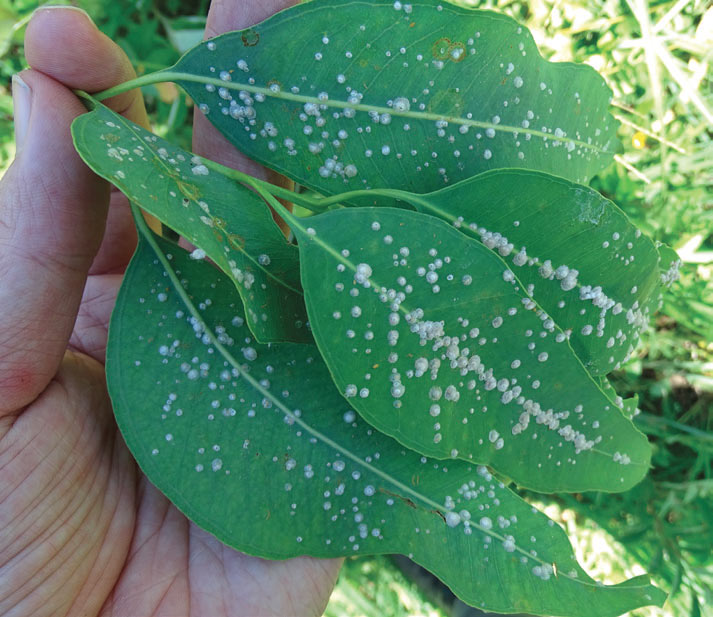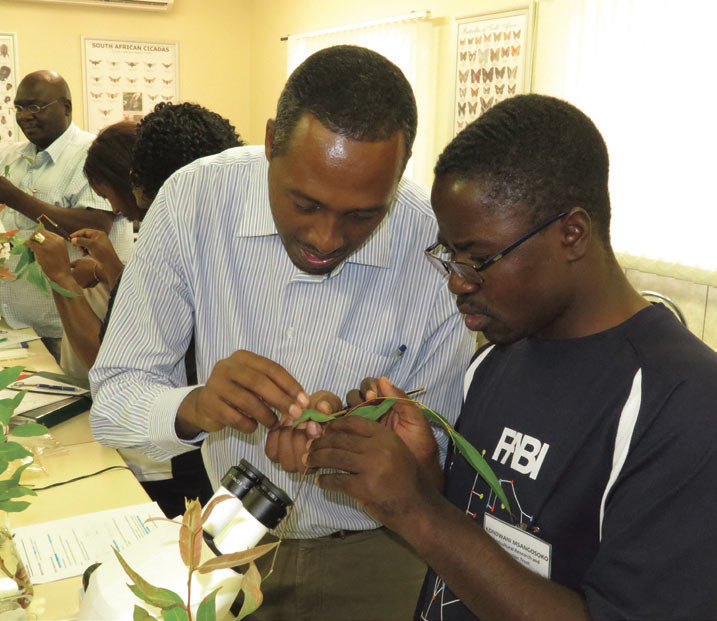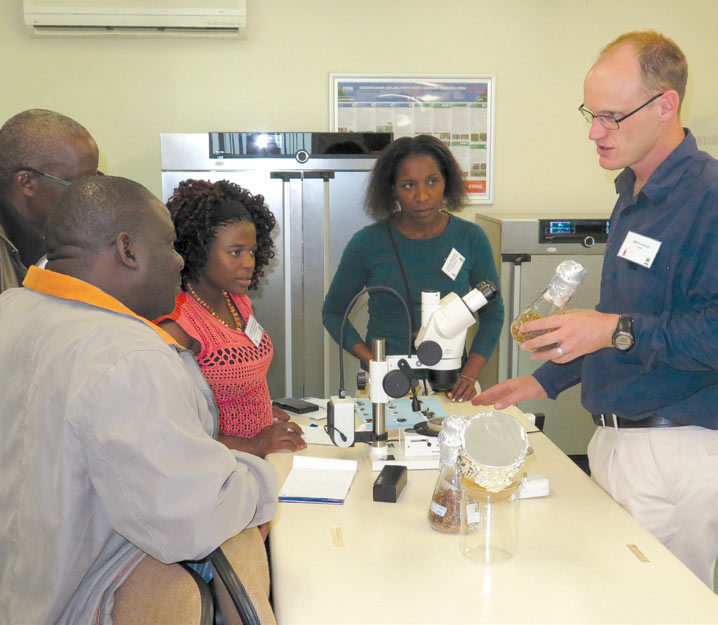


In Africa, the use of productive tree species such as Eucalyptus is increasing rapidly in order to bridge the gap between demand and supply of wood. In addition to providing building materials, fuel-wood, poles and farm timber, monetary income from Eucalyptus has helped in buffering financial crisis for many poor farmers.
The important socio-economic contribution of Eucalyptus plantation forestry in Africa is challenged by disease and insect pests of these trees. This is mostly due to accidental introductions of insect pests and diseases from the native range of Eucalyptus to its new environment, and in some cases due to host expansions of pathogens and insects native to areas where Eucalyptus is planted as exotic species.
Dr Brett Hurley and colleagues, including Professors Bernard Slippers and Michael Wingfield at the Tree Protection Cooperative Programme (TPCP) in the Forestry and Agricultural Biotechnology Institute (FABI), are developing a regional management strategy to manage these insect pests, using a combination of approaches and tools. In 2015, substantial progress was made in developing molecular tools to accurately identify pest species. Molecular tools are often needed to confirm identifications of insects, especially when collecting the immature stages, but also to distinguish between cryptic species or different genotypes of the same species, which can differ in their virulence, host associations and response to management strategies. Comparing the genetic diversity within and between insect populations can also assist to infer patterns of spread and thus identify potential source areas of introduction.
Biological control is considered one of the most effective and feasible responses to insect invasions and consequently the TPCP has developed much capacity in this area over the years, including the establishment of the FABI Biocontrol Centre, consisting of advanced facilities and equipment and highly skilled staff. Research has focused on the development and optimisation of biocontrol agents, and has resulted in the release of agents for all the current major invasive insect pests of Eucalyptus in Africa. Most of the releases have been in South Africa, but collaborations with other African countries have been growing.
Going forward, Dr Hurley will be leading a workshop to develop capacity in biological control in sub-Saharan Africa. The workshop will include members from various African countries, with participants being supported to attend by the United Nations Food and Agricultural Organisation (FAO), the Tobacco Research Board of Zimbabwe, the tobacco industry in Malawi, and relevant government departments.